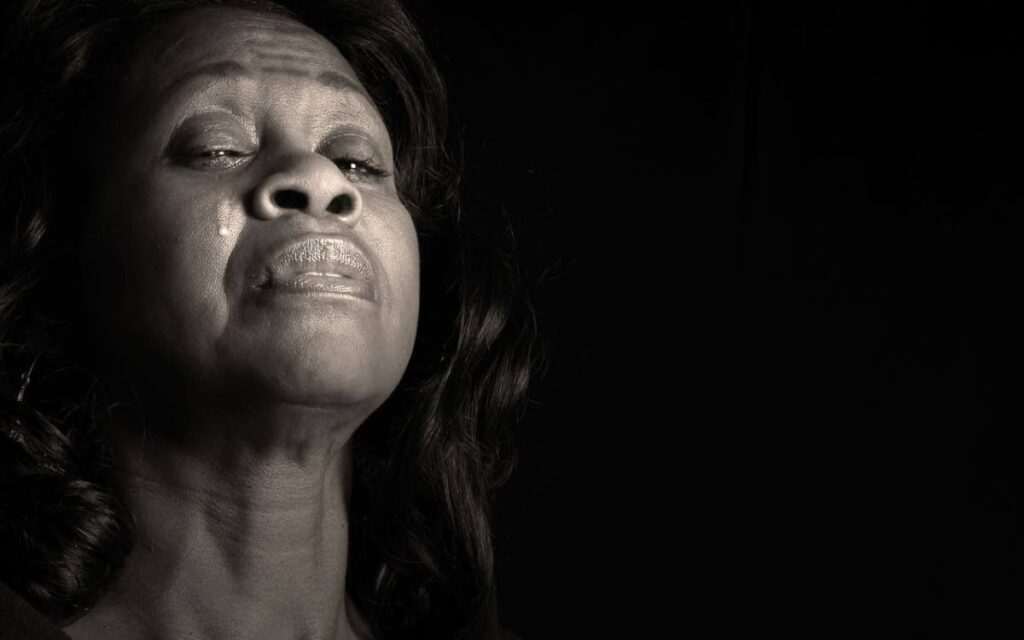When it's time to let go

Grief is a universal thing and at some point, everyone experiences it. The experts say there are seven stages of grief – shock, denial, anger, bargaining, depression, acceptance, and processing grief – but for everyone, it is a personal experience and there is no textbook that can tell you how to grieve or give you a timeline or schedule to follow. Some people are able to easily deal with it, others may go off the deep end and have to seek professional help. Some may grieve for a month or two, others may take years to get used to their loss.
On the afternoon of June 13, when I sat next to my stepfather, took his frail hand in mine and told him it was okay for him to “go,” and that we, his family, would be okay, in hindsight I don’t think I was truly prepared for the impact of what happened next. At 71, he had been confined to a bed and hooked up to an oxygen concentrator machine for over eight months, unable to do anything for himself. He had always been active and had a healthy appetite, so seeing him lying helpless only nibbling on two bites of whatever he felt like eating on any given day was heartbreaking. He was not big in stature, and I never imagined he could have gotten any smaller, but he just kept shrinking until he was mere skin and bones with swollen, painful knees. Throughout it all, though, he was very vocal, and his mental faculties were in tip top shape.
So when my sister called that fateful morning, panic in her voice, informing me that he wasn’t responding to anything, I knew the inevitable had come. Yet, I wasn’t prepared for what awaited me when I entered his room. His eyes, with what looked like a sheer veil pulled over them, were darting in any direction in which he heard a voice. His mouth was open and he was gasping for breath, his bony chest heaving labouriously with every attempt. He couldn’t speak.
Taking him to the hospital was out of the question, because after he had been discharged from the Eric Williams Medical Sciences Complex in Mt Hope in October 2021, he was adamant that we never take him to a hospital again. “I want to die in my own bed,” he had always insisted. And we didn’t force the issue because long before his last stay at the hospital his doctor had told us there was nothing else to be done for him medically, and to just make him comfortable at home. He was at stage 4 chronic obstructive pulmonary disease – the final stage which most people reach after years of living with the disease and the lung damage it causes.
“Hey,” I said softly after hours of watching the man I had known as my father since I was two years old struggling to hold on to life. His eyes shot in my direction. “If you’re ready to go, it’s okay. We’ll be fine. I’ll make sure Norma (my mother), Devon (my brother), and Tyler, Justin and Nicholas (my nephews) are okay,” the ones he always worried about. “Thank you for being a good husband, father and grandfather. We love you and will miss you, but we understand that you’re in pain. You go and rest in peace. Are you ready to go?” He gave a slight nod, and as if he was just waiting for that reassurance, two hours later he was gone – a lifeless body lying in his bed, waiting to be probed by the police to rule out foul play in his death, then to be picked up by the funeral home attendants. The last time I had felt this hollowness in my insides was in 2018 when my grandmother had died.

I recall how my heart lurched when his arms dropped to his sides as they lifted him off the bed, and how they gently wrapped him and took him away from his home, never to return again – a traumatising visual that is on repeat in my head. I recall speaking with the DMO the following morning and registering his death at the Sangre Grande hospital, making funeral arrangements and going through three nights of wake in good stride. I recall how peaceful and handsome he looked on the day of the funeral, thanks to Clive Allen Funeral Services in Guaico, and the beautiful farewell service he got, thanks to the members of the Sangre Grande Evangelical Church. I, with family members and friends looked on as he was placed in his final resting place, next to his parents and nephew at the Coal Mine Public Cemetery. I recall the ordeal of informing the Ministry of Social Development and Family Services of his death so his pension could be stopped (a horror story for another time), tying up all the loose ends, then neatly packing away all his documents in a box.
And then it all came crashing down. I had reached breaking point and had a major emotional meltdown, and I’ve had several mini ones since then. I’ve read somewhere that a big life transition, such as the death of a loved one, is one of the triggers of emotional meltdowns, so I’m guessing they’ll keep happening for a while until I get to the acceptance stage in my grieving process. I don’t know exactly where I’m at right now because I still can’t believe he’s gone; I’m angry that of all the times he had chosen to listen to me was the one time I told him to go; I would still give anything to have the healthy him back; and, on some days, depressed to the point where I can barely function.
But, if given the opportunity to go back to the afternoon of June 13, would I have begged him to stay and rushed him to the hospital so a machine could prolong his life just so I could say he’s alive? Certainly not! I believe life is to be lived. This once hard-working man now being kept alive by an oxygen machine was not living. So as far as I’m concerned, me having meltdowns and dysfunctional days for who knows how long is a small price to pay for knowing that Terrence Singh, the man who gave so much for and to his family, is at rest.
Here are some ways to cope with feelings of grief:
Acknowledge your losses and your feelings of grief.
Find ways to express your grief. Some people find comfort through art, gardening, writing, talking to friends or family, cooking, music, gardening or other creative practices.
Consider developing new rituals in your daily routine to stay connected with your loved ones to replace those that have been lost.
People who live together may consider playing board games and exercising together outdoors.
People who live alone or are separated from their loved ones may consider interacting through phone calls and apps.
If you are worried about future losses, try to stay in the present and focus on aspects of your life that you have control over right now.
(cdc.gov)

Comments
"When it’s time to let go"